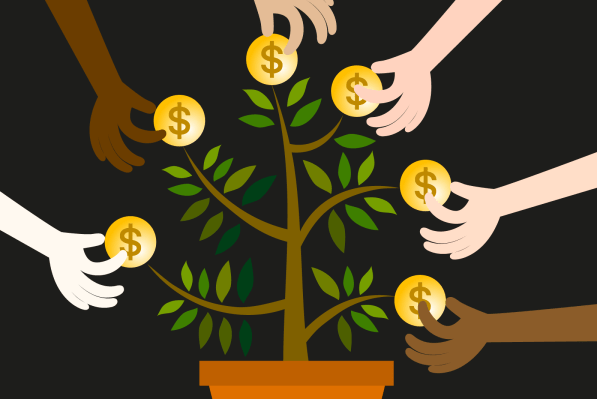Societal health can be assessed by a handful of factors: economic mobility (is the current generation earning more than their parents did?), upward mobility (the rate of which an individual can improve their own socioeconomic status), productivity (how efficiently one can earn income) and lastly, whether they have sufficient access to the resources and tools required to advance one’s position.
The last element, accessibility, is arguably one of the most important factors in a healthy society.
When an individual does not have access to the tools and/or resources necessary for their personal advancement, they’re left with two possible outcomes; they can either maintain their current financial situation or they could backslide down the socioeconomic spectrum.
Take, for example, someone who lives near or even below the poverty line. This person must overcome the hurdles of restricted or non-existent access to the same resources that more privileged counterparts take for granted: education, financial literacy, capital; all of the things that we know to be indicators of economic mobility. This person is faced with the prospect of trying to make their way in a financial system that’s designed to encourage failure, rather than success. It’s not a fair playing field, and the design of our current financial systems only further reinforces this disparity by restricting their access to the credit they need to succeed
Let’s say that this individual makes their living as a janitor but would like to become a delivery driver so they would have less physical labor in their job. To become a driver, they need a reliable car, which translates to the need for an auto loan. Having the financial access to an auto loan can make a tremendous impact on this one person’s financial mobility, bettering their life and the community as they experience an increase in earning potential.
After acquiring the car and starting their new job as a delivery driver, the individual realizes they’d benefit greatly from the additional income that comes from working as an Uber driver, too. And, they know that by acquiring a car that qualifies for the Uber Black program vs. a similarly-priced car that does not qualify for Uber’s luxury rides, they’d earn even more. That singular piece of knowledge about which car to choose represents the difference that information capital makes in the equation of economic mobility. When armed with information, or intellectual capital, people can make better choices.
And, when people make better choices, we all benefit. For one thing, the risk of incarceration is lessened by moving away from the poverty line. Further, the ability to transition from a job to a career becomes attainable, and with that comes benefits like insurance, retirement investing and increased stability for their families. As people move up the ladder, they also contribute more to the tax base and to their local community’s economy with their increased spending power.
So, when we provide people with the means to better themselves, our entire society rises with them.
Lower-income individuals often find themselves in an unfair catch-22: they need to be “better off” to gain access to credit, but they need something (car, education, suit, inventory capital) to become “better off.” But, when you provide access to financial capital and combine that funding with actionable information and data about how to best manage their capital, you offer that person economic mobility while mitigating the increased risk that can accompany access to credit.
As we approach the ten-year anniversary of the start of the second Great Recession, we need to rethink how we approach consumer finance as a society. We need to provide better access to financial capital as well as the tools and information required to manage debt effectively so that individuals can leverage it into personal advancement. If retailers and financial institutions simply created and promoted financial products that are honest, transparent and simple for consumers, we could impact economic mobility at scale, ultimately leading to a healthier society.
